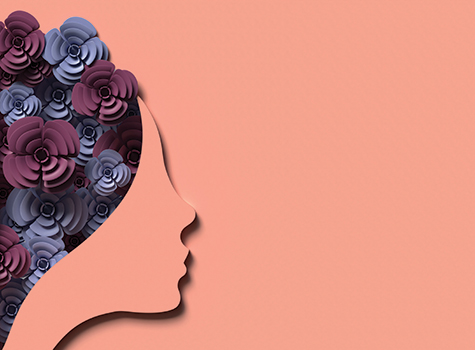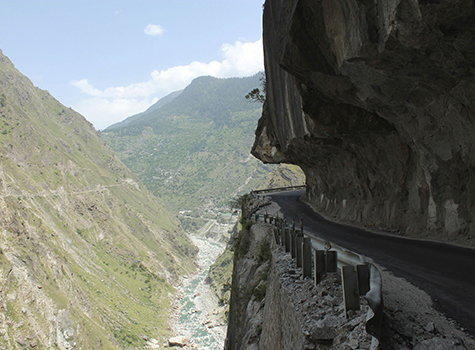By Shyama Parui

It was a balmy evening in August and members of the local Indian diaspora were trickling in to gather by Charlotte’s Mecklenburg County courthouse. As the sun set, women, men and children lit candles, held posters, and chanted the slogan, “We want justice.”
An unimaginable crime had occurred in Kolkata, India sending shockwaves around the world. A medical resident at the R.G. Kar Medical College was raped and murdered while on a break from a long shift treating patients. Full details of the case are still unraveling but based on what is known, the victim was attacked to prevent her from exposing certain illegal operations. The demand for thorough investigation and arrest of the criminals was echoed all around India.
Doctors held a day of protest refusing to treat non-emergency cases. For Charlotte residents with Indian roots, the pain was felt by everyone. Participating in the protest march was an avenue for processing the intense emotions experienced and demonstrated solidarity with the protestors in India. Witnessing other Indian Americans assemble to express outrage, sorrow, as well as the urge to speak up reinforced the belief that humanity is still alive.
From a young age, women in most parts of the world are cautioned about the dangers to their safety. As a teenager, I remember telling my parents that they were being overprotective and imagining things that could never happen. However, now that I am a parent my fears have grown exponentially.
Every time I hear the siren of an emergency vehicle, my heart skips a beat, and I check Life 360 to know where my family members are. Assaults against women are not isolated to a small region or class, it is a global issue. Gruesome incidents shake one’s faith in the government, judicial system and even God.
The disillusionment makes us question whether we are truly safe and if our lives matter to others. Women in many countries including the United States, are at greater danger of becoming victims of violent actions. On the heels of the R. G. Kar incident, many women in India have shared how unsafe hospitals are for women on their staff. Doctors and nurses who work relentlessly don’t have a decent place to rest during their break.
They become targets of unwanted sexual advances by patients or other male staff members. And these are just some examples of how medical professionals who have labored to gain their expertise are deprived of the respect they deserve.
Across professions and socio-economic strata, domestic violence has been continuing for centuries and hopes of eradicating this malaise are slim. At a systemic level, patriarchal societies have not granted equal rights to women although the level of disparity has changed. An unfortunate outcome of inequality is the implicit message sent to men that women are lower in status.
Young boys witnessing the mistreatment of women may mistakenly normalize it, and then incorporate disrespectful behaviors in their adulthood. Women too, often become resigned to their fate in this matter or choose not to complain about situations where they are discriminated against. It is fair to ask that women no matter where they are on this planet should be able to live without the constant fear of being violated by another human.
When criminality raises its ugly head, denial or inaction are not options. Simply pointing out the problem will not help either. Investing in resources that will help in reducing crime is imperative and long overdue. In places with high crimes against women, special units can be created with forces trained in tracking potential threats, tracing dangerous persons or groups, and swiftly catching the perpetrators. All law enforcement officers should be taught to express empathy and understanding towards victims reporting crimes such as rape, where the woman is often stigmatized.
It goes without saying that corruption should be punished but we all know that it is easier said than done. In India, an emergency rapid response system like the blue light towers in American universities, can be set up in public places such as railway stations and colleges.
I would love to see a multidisciplinary study that identifies cultural norms, as well as practices and policies that have made countries such as Norway and Finland among the safest places for women. An ideal outcome would be witnessing some of their best practices adopted in India.
The entertainment industry with its heavy influence on the masses can become a part of the solution by promoting the ideals of equality and respect for fellow human beings whether they are men or women. Sometimes when I watch movies churned out by Bollywood, I am infuriated by the way women are depicted and the way they are treated. Male characters are shown to pursue women persistently but in a way that disrespects the female character’s wishes and her personal space. She is expected to feel flattered when a man happens to be infatuated and if she doesn’t, she is labeled as arrogant.
A handful of the newer films appear to be progressive, but wouldn’t it be great to see the men ruling the silver screen portray true acts of valor that the common person can emulate. Popular culture can be a stimulus that instigates societal change for good.
At an individual level, one can educate and encourage children and all family members about a woman’s vulnerability. There is an urgent need to instill values that place an emphasis on being a good and kind human being before becoming a successful professional. Families should openly discuss concepts of consent, respecting boundaries, and what to do if those are violated. Clear communication of the family’s expectations is vital.
If we contemplate about the women in our lives, we will realize that our existence would be threatened even if one of them was missing. Let us rethink our priorities and as we worship the powerful Goddess Durga, we can collectively pledge to use our voice to seek justice until it is served.
Shyama Parui is a long time North Carolina resident and an ardent writer. You can reach her at [email protected]



